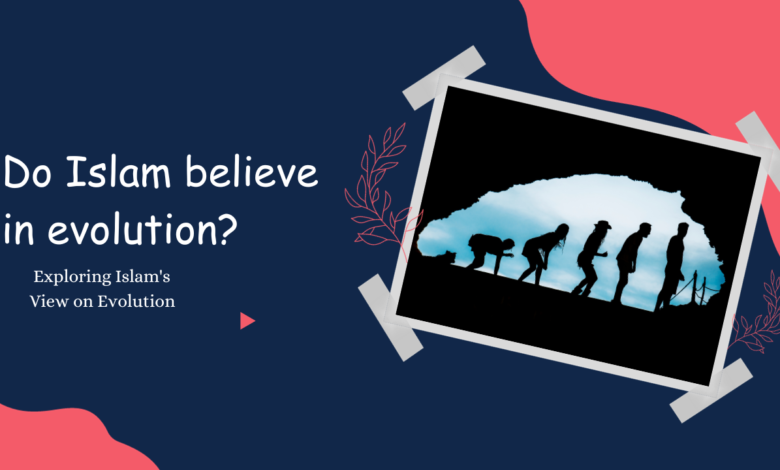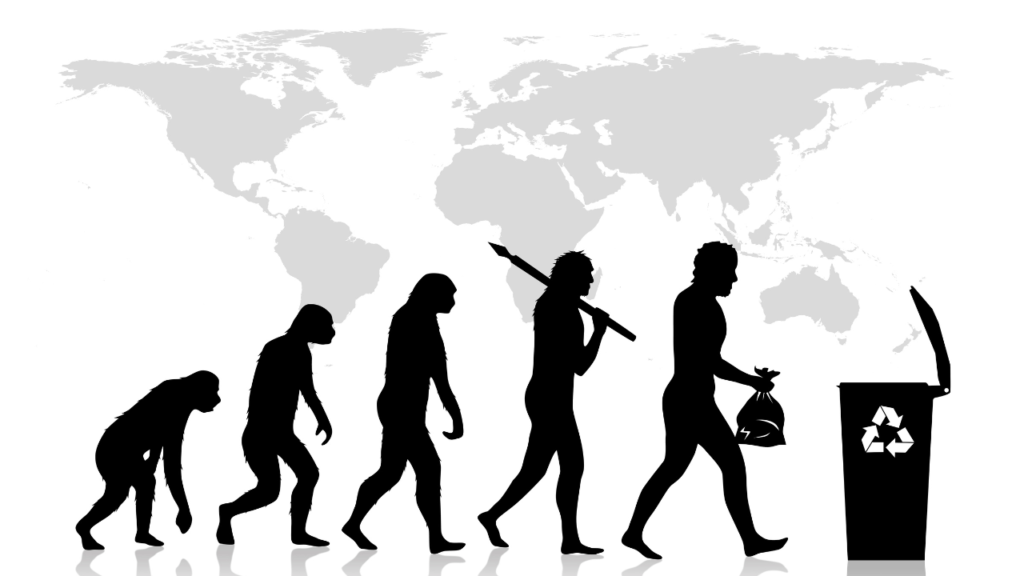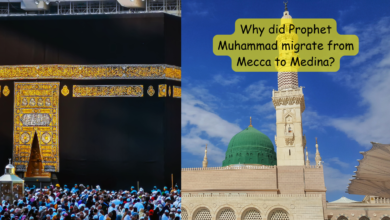
Do Islam believe in evolution?
Islam’s stance on evolution varies among scholars and individuals. Some Muslims fully accept the theory of evolution, while others do not. It’s not a universally held belief within the Islamic community.

Introduction
The relationship between religion and science has long been a topic of discussion and debate. One area where this tension often arises is the theory of evolution, which has become a cornerstone of modern biology. In the case of Islam, the question of whether the religion is compatible with the concept of evolution has generated considerable interest and discussion. This article aims to explore the perspective of Islam on evolution and shed light on the various viewpoints within the Islamic community.
Understanding the Theory of Evolution
Before delving into Islam’s stance on evolution, it is crucial to have a clear understanding of what the theory of evolution entails. Evolution is a scientific theory developed by Charles Darwin in the 19th century that posits that all species of living organisms have descended from common ancestors through a process of gradual change over long periods of time. This process occurs through mechanisms such as natural selection and genetic mutation, leading to the diversity of life we observe today.
Also Check
- Who is Abraham in Islam?
- How did Jesus die in Islam?
- Rights of a Muslim Wife upon Her Husband
- Charity As Taught By Quran And Prophet Muhammad (PBUH)
- What are some similarities between Judaism Christianity and Islam?
Islamic Perspectives on Evolution
- Creationism:
- One prevalent perspective within the Islamic community is creationism. Many Muslims believe in a literal interpretation of the Quran, the holy book of Islam, which describes God (Allah) as the Creator of all things. According to this view, species were created separately and did not evolve from common ancestors. Creationists often reject the theory of evolution as incompatible with their religious beliefs.
- Theistic Evolution:
- Another perspective, often referred to as theistic evolution, seeks to reconcile Islamic faith with the scientific theory of evolution. Theistic evolutionists believe that God initiated the process of evolution and guided it to produce the diversity of life we see today. They argue that the Quran’s descriptions of God’s creative power are not necessarily in conflict with the idea of evolution being the mechanism through which God brought life into existence.
- Non-Literal Interpretation:
- Some scholars and theologians in the Islamic tradition argue for a non-literal interpretation of certain Quranic verses related to creation. They suggest that the Quran’s description of creation should be understood metaphorically or allegorically, allowing for the possibility of evolutionary processes being part of God’s plan.
- Diverse Views:
- It’s important to note that Islamic perspectives on evolution are diverse and can vary significantly among individuals, scholars, and Islamic communities. Some Muslims fully embrace the theory of evolution, while others vehemently reject it. There is no single, monolithic stance on this issue within the Islamic world.
Conclusion
The question of whether Islam believes in evolution is a complex and nuanced one. Islamic perspectives on evolution span a wide spectrum, from literal rejection to enthusiastic acceptance. It is crucial to recognize that interpretations of religious texts and beliefs can evolve over time and are influenced by individual and cultural factors.
Ultimately, whether Islam and evolution are compatible depends on one’s personal beliefs, interpretation of religious texts, and their openness to reconciling science with faith. While some Muslims find harmony between the two, others may continue to hold more traditional and conservative views. As discussions about science and religion continue to evolve, it is essential to approach this topic with respect for differing beliefs and an open dialogue that seeks common ground.

(FAQs) about Islam’s stance on evolution:
Does Islam accept the theory of evolution?
Islam’s stance on evolution varies among scholars and individuals. Some Muslims fully accept the theory of evolution, while others do not. It’s not a universally held belief within the Islamic community.
Is there a specific Islamic view on evolution?
No, there is no single, unified Islamic view on evolution. Islamic scholars and theologians have diverse opinions on this topic. Some interpret Islamic teachings in a way that allows for compatibility with evolution, while others maintain a more traditionalist view.
Can Muslims believe in both Islam and evolution?
Yes, many Muslims reconcile their faith with the theory of evolution by interpreting the Quranic verses and Hadiths in a way that accommodates scientific findings. They argue that God’s creation can include the process of evolution.
Do some Muslims reject the theory of evolution completely?
Yes, there are Muslims who reject the theory of evolution on religious grounds. They argue that it contradicts the Quranic account of creation and believe that humans were created separately and not through a process of evolution.
Are there prominent Muslim scholars who support the theory of evolution?
Yes, some prominent Muslim scholars and scientists have expressed support for the theory of evolution. They argue that evolution is compatible with Islam and that the Quran’s descriptions of creation can be interpreted allegorically.
What are some key Quranic verses related to creation?
Quranic verses such as Surah Al-Anbiya (21:30) and Surah Al-A’raf (7:54) are often referenced in discussions about creation. These verses mention God’s role as the Creator and His creative power.
Are there Islamic scholars who have written about the compatibility of Islam and evolution?
Yes, several Islamic scholars and theologians have written books and articles discussing the compatibility of Islam and evolution. These writings present various interpretations and arguments, often taking into account both scientific and religious perspectives.
Does the acceptance or rejection of evolution affect a person’s faith as a Muslim?
Belief in evolution is not a fundamental requirement of being a Muslim. Faith in Islam revolves around the belief in the oneness of God, the prophethood of Muhammad, and adherence to the Quran and Hadith. Evolution is a secondary issue and does not define a person’s faith.
Can Muslims study and teach evolutionary biology?
Yes, many Muslims pursue careers in evolutionary biology and related fields. They may see science as a means of understanding God’s creation better. The acceptance or rejection of evolution can vary among Muslim scientists.
How should Muslims approach the topic of evolution in discussions with others?
Muslims should approach discussions about evolution with respect for differing viewpoints. It’s essential to engage in informed and respectful dialogue, acknowledging that interpretations of Islamic teachings can vary, and science continues to evolve.






![Title: Finding Solace and Tranquility in Surah Fajr In a world engulfed by constant chaos, stress, and anxieties, seeking solace and tranquility has become a universal pursuit for many individuals. For the believers of Islam, finding peace amidst life's challenges is often sought through recitation and reflection on the Quran, the holy book that serves as a divine guidance for Muslims. One particular chapter that holds significant potential for comfort and serenity is Surah Fajr. Surah Fajr, the 89th chapter of the Quran, is a profound and emotionally charged Surah that contains essential lessons and reminders for believers. The Surah is a powerful representation of the fleeting nature of life and the consequences of human actions. It comprises thirty verses that were revealed in Makkah, during a time of great turmoil and adversity for the early Muslims. The Surah begins by bearing witness to the dawn, a time symbolizing hope, renewal, and new beginnings. In this context, the Surah describes the people of Thamud and their unjust treatment of their Prophet, Saleh, who was sent to guide them away from their sinful ways. The destruction that befell them serves as a stark reminder of the consequences of turning away from divine guidance and persisting in wrongdoing. One of the most powerful and emotionally charged verses of Surah Fajr is the fifth verse: "And as for man, when his Lord tries him and [thus] is generous to him and favors him, he says, 'My Lord has honored me.'" This verse highlights the nature of human beings, who tend to become arrogant and ungrateful during times of prosperity, forgetting the source of their blessings. The following verse presents a contrasting scenario: "But when He tries him and restricts his provision, he says, 'My Lord has humiliated me.'" Here, the Surah emphasizes the tendency to despair during times of hardship, often failing to recognize the wisdom behind trials. However, Surah Fajr does not merely focus on the gloomy aspects of life. It provides a profound sense of hope and consolation, reminding believers that life is a test and a means for spiritual growth. As verse 28 states: "Return to your Lord, well-pleased and pleasing [to Him]." This verse encourages believers to remain content and grateful during both times of ease and hardship, trusting in Allah's wisdom and submitting to His will. The Surah concludes with a powerful reminder of accountability, as every soul shall be held accountable for its deeds. Verse 30 states: "But as for he who is given his record in his left hand, he will say, 'Oh, I wish I had not been given my record.'" This verse serves as a warning to those who indulge in wrongdoing and choose to ignore divine guidance, urging them to reflect and rectify their ways before it is too late. Reciting Surah Fajr and pondering its meaning can have a profound impact on an individual's psyche. It offers solace and tranquility by instilling a sense of purpose and perspective, helping believers navigate life's challenges with a renewed sense of faith and determination. Here are some ways believers can find solace and tranquility in Surah Fajr: 1. **Reflection and Contemplation:** Take time to read and ponder the verses of Surah Fajr. Allow its messages to penetrate your heart, and contemplate on the transient nature of life and the importance of gratitude and humility. 2. **Prayer and Connection:** Incorporate the recitation of Surah Fajr in your daily prayers. Establishing a strong connection with Allah through prayer and remembrance can bring inner peace and a sense of tranquility. 3. **Learning from the Past:** Draw lessons from the stories mentioned in the Surah, such as the people of Thamud, and use them as a guide to avoid repeating their mistakes. 4. **Gratitude and Contentment:** Develop an attitude of gratitude and contentment, whether in times of ease or adversity, knowing that every situation serves a purpose in your spiritual journey. 5. **Repentance and Forgiveness:** If you find yourself straying from the path of righteousness, seek forgiveness from Allah and resolve to rectify your ways. Surah Fajr teaches the importance of seeking Allah's mercy and guidance. 6. **Community and Support:** Engage with your community and find support in the company of like-minded individuals who share your faith and values. Together, you can encourage each other to stay steadfast on the path of righteousness. In conclusion, Surah Fajr is a profound chapter in the Quran that offers solace and tranquility to those who reflect on its teachings. It reminds believers of the impermanence of worldly life and the significance of living with gratitude and humility. By turning to the Quran and contemplating its verses, Muslims can find peace and guidance amidst the trials and tribulations of life, ultimately fostering a stronger connection with their Creator.](https://surahfajr.com/wp-content/uploads/2023/08/Finding-Solace-and-Tranquility-in-Surah-Fajr-390x220.png)